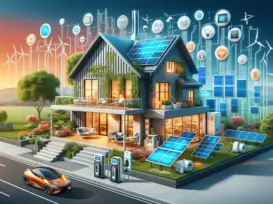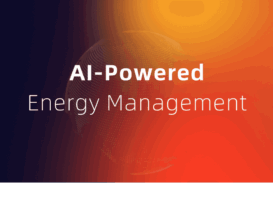Grus Home Energy - Smart Grid Technology
Revolutionizing Energy Management: The Emergence of Smart Grid Technology
Revolutionizing Energy Management: The Emergence of Smart Grid Technology
In the relentless pursuit of energy efficiency and sustainability, smart grid technology has emerged as a game-changer in the way we generate, distribute, and use electricity. Unlike traditional power grids, which are often described as archaic and rigid, smart grids integrate digital technology to create a two-way dialogue between utility providers and consumers. This innovative approach not only enhances the reliability and distribution of power but also empowers consumers to play an active role in their energy consumption, potentially leading to cost savings and environmental benefits.
At the core of smart grid technology lies the advanced metering infrastructure (AMI), which includes smart meters installed at consumer locations. These devices provide real-time data on energy usage, allowing for more accurate billing and the ability to detect and respond to power outages more promptly. Smart meters also enable dynamic pricing, where electricity rates can fluctuate based on demand, giving consumers the incentive to use energy during off-peak hours when it is cheaper.
Another key component is the integration of renewable energy sources such as solar and wind power. Smart grids can accommodate the variability in supply that these sources often present, ensuring a more stable and sustainable energy mix. For instance, excess energy generated by household solar panels during the day can be fed back into the grid, and in some cases, consumers can receive credit on their bills for this contribution.
Grid resilience is another significant advantage provided by smart grid technology. With the ability to anticipate and isolate faults, the system reduces the likelihood of widespread power outages. Automated switchgear and real-time monitoring mean that when an issue does occur, the grid can quickly reroute power to minimize disruption. This self-healing capability is crucial in the face of increasingly common extreme weather events likely exacerbated by climate change.
Smart grids also pave the way for the broader adoption of electric vehicles (EVs). By managing the demand and ensuring that the charging infrastructure is efficient and reliable, smart grids can handle the additional load that EVs bring. Furthermore, the vehicles themselves can act as mobile energy storage units, providing power back to the grid during peak demand times through vehicle-to-grid (V2G) technology.
One of the biggest challenges facing the deployment of smart grid technologies is cybersecurity. The increased connectivity and reliance on digital systems open up vulnerabilities that could be exploited by malicious actors. Consequently, substantial investments are being made in securing these networks, ensuring the privacy and safety of user data, and maintaining the integrity of the power supply.
In conclusion, smart grid technology stands at the forefront of a new energy paradigm. It offers a multitude of benefits, from improved energy efficiency and enhanced consumer control to better integration of renewable resources and increased grid resilience. As the technology continues to evolve, we can expect smart grids to play an increasingly vital role in the transition towards a more sustainable and reliable energy future. In doing so, they will not only redefine how energy is consumed but also how it is valued in the modern world.
Blog, Smart Home Automation , February 17, 2024 , Electric Vehicle (EV) Charging, Energy Consumption Analysis, Energy Management, Energy Savings and Profit, Heat Pumps Optimization, Home Battery Storage, Renewable Energy Technologies, Smart Grid Technology, Smart Metering, Smart Metering Systems, Solar Panels Efficiency, Sustainability in Home Energy
©2025 All Rights Reserved. Grus IoT Co.,Ltd.

